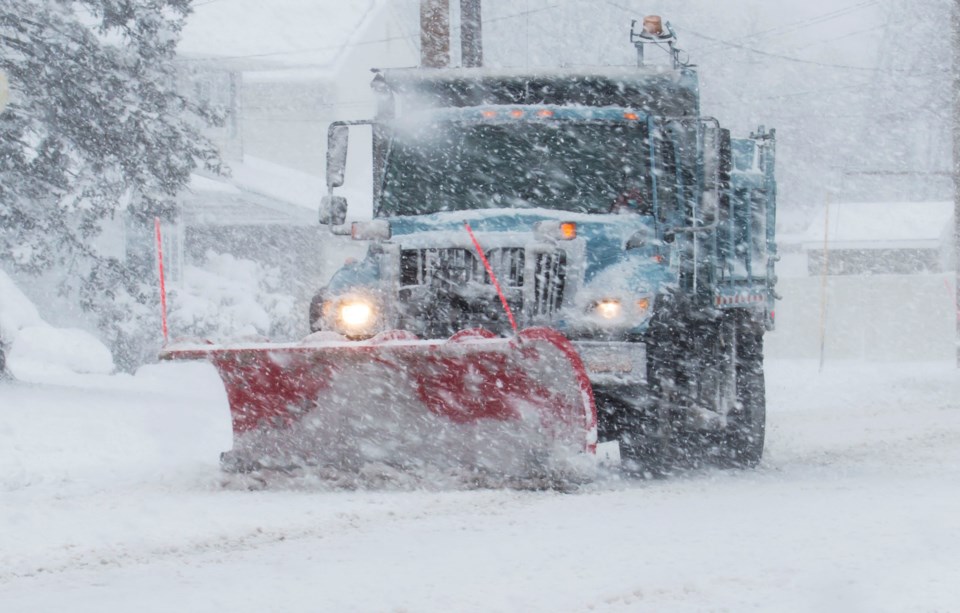As part of a pilot project, the City of Orillia will stop applying sand to municipally maintained roads and parking lots this winter.
The city normally applies a mixture of salt and sand to its roads and parking lots, but city staff highlighted environmental effects, sand’s ineffectiveness at improving friction, and cost savings as major factors in the decision.
According to city staff, the expected benefits of halting sand application include less time handling materials, more timely application during the winter, a reduction in environmental effects in terms of water and air, including reduced dust, a reduction in maintenance needs for the city’s storm infrastructure, and a reduction in spring cleanup requirements.
The pilot project will roll out in three potential phases, which — provided they are successful — will see sand application removed from the city’s trails and sidewalks in 2023, with an updated salt-management plan brought to council in 2024.
In a statement, Andrew Schell, the city’s general manager of environment and infrastructure services, highlighted sand’s general ineffectiveness compared to salt.
“In general, (sand and salt) do not work the same way to treat winter road conditions. Salt melts snow and ice, while sand provides road traction and makes it harder for roads to refreeze,” he said. “However, sand can have many issues associated with it, including environmental, can have additional costs, and its effectiveness in improving road safety can be limited.
“As this is a pilot project, we will be monitoring the impacts.”
Pointing to several studies, a staff report notes sand is not effective at improving friction on roads, stating “much of the sand applied blows off the road within relatively few vehicle passes at speeds over 40 km/h.”
Schell said removing sand from the city’s winter maintenance efforts will result in cost savings, though he was unsure of the exact figure.
“As this is the first phase of the pilot project, we do not have specific values at this time,” he said. “In other municipalities that have made the switch, such as the Town of Aurora, Town of East Gwillimbury and the City of Mississauga, they have reported cost savings and increased effectiveness. We look forward to determining the potential savings during the pilot.
“There may be times when sand is required due to the weather conditions, including more extreme cold weather and freezing rain. The weather conditions will be the dominant factor and costs will increase/decrease according to the type of winter the city receives.”
Sand can have numerous negative effects on the environment and city infrastructure, Schell noted.
“Sand can enter the stormwater system and creates additional costs for catch basins, ditches and dredging of the outfalls entering the streams and lakes,” he said. “The use of sand causes a buildup of sediment and increases the cloudiness in waterways, impacting aquatic ecosystems negatively.
“The air quality impacts associated with dust will be greatly reduced. In addition, the reduction in spring cleanup activities will reduce greenhouse gas emissions due to the equipment usage reductions including street sweepers, water trucks and dump trucks associated with the removal process.”
A bulletin issued by the Lake Simcoe Region Conservation Authority stated both sand and salt have adverse environmental impacts, but it noted the relative ineffectiveness of sand.
“Many (jurisdictions) have found that in terms of effectiveness in improving road safety, and particularly from a cost perspective, sand is not seen to be a viable option when it comes to winter maintenance,” it noted.
To have the same effectiveness, sand needs to be applied at three to seven times the rate of salt, the bulletin stated.



